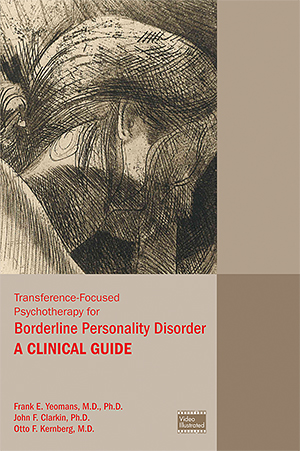Sections
Excerpt
The advanced phase of transference-focused psychotherapy (TFP) corresponds to a sufficient working-through of previously split-off transference developments. At this point in therapy, the patient can tolerate experiencing a fuller range of affect and can better master affects as they arise. The patient’s awareness of the interchange of roles with the therapist within a dyad has helped the patient take back parts of the self that he or she traditionally projected. In the advanced phase, interpretive integration of the mutually split-off idealized and persecutory segments of the patient’s internal experience proceeds as the central focus in a cycle where decreased internal splitting gives rise to increased cognitive awareness and better affective modulation, which in turn leaves the patient with an improved capacity to reflect and use the interpretive process (as seen in the case of Amy in Chapter 9, “Midphase of Treatment”). The advanced phase is not a clear transition but emerges when the patient begins to accept the awareness that his or her identity includes parts that he or she had unconsciously attempted to reject previously. As described in Chapter 9, even after therapy enters the advanced phase, progression and regression occur as the patient’s primitive defense mechanisms diminish or reassert themselves in accordance with the ebb and flow of challenging and stressful experiences in the patient’s life.
Access content
To read the fulltext, please use one of the options below to sign in or purchase access.- Personal login
- Institutional Login
- Sign in via OpenAthens
- Register for access
-
Please login/register if you wish to pair your device and check access availability.
Not a subscriber?
PsychiatryOnline subscription options offer access to the DSM-5 library, books, journals, CME, and patient resources. This all-in-one virtual library provides psychiatrists and mental health professionals with key resources for diagnosis, treatment, research, and professional development.
Need more help? PsychiatryOnline Customer Service may be reached by emailing [email protected] or by calling 800-368-5777 (in the U.S.) or 703-907-7322 (outside the U.S.).



